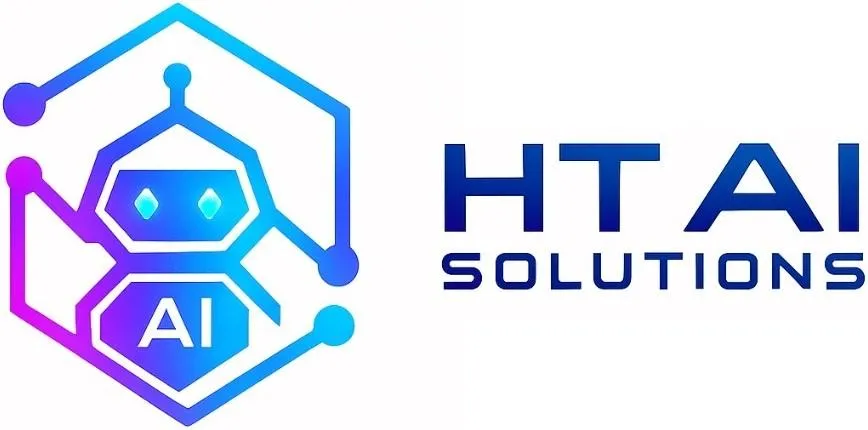Our Blogs
Review our articles below to get the latest information and insights about AI and the industry!
What Are Businesses Using AI For?
August 7, 2025
According to McKinsey’s 2025 “State of AI” survey, 78 percent of organizations now use AI in at least one business function—up from 55 percent a year earlier—with the biggest jumps in IT and marketing & sales, followed by service operations and product development McKinsey & Company. Below are the primary ways businesses are applying AI today:
1. Core Business Functions
IT & Infrastructure: Automating routine IT operations (AIOps), anomaly detection in networks, and predictive maintenance for hardware and cloud resources McKinsey & Company.
Marketing & Sales: Generative AI for personalized email and ad copy, dynamic pricing, lead scoring and segmentation, A/B testing optimization, and chat-based product recommendations McKinsey & Company.
Service Operations: 24/7 chatbots and virtual assistants that handle customer inquiries, schedule appointments, process simple transactions, and route complex issues to humans McKinsey & Company.
Product & Service Development: Rapid prototyping and generative design (e.g., creating CAD models), simulation of “what-if” scenarios, and automated documentation McKinsey & Company.
Software Engineering: AI code assistants that generate boilerplate, review pull requests, write unit tests, and refactor code—freeing developers to focus on architecture and complex features McKinsey & Company.
2. Operational & Financial Excellence
Supply Chain & Inventory Management: AI-driven demand forecasting, inventory optimization, and dynamic replenishment reduce stockouts and carrying costs—organizations report measurable cost decreases and revenue uplifts in these areas McKinsey & Company.
Strategy & Corporate Finance: Machine-learning models for financial forecasting, scenario planning, risk analytics, and M&A due diligence—some business units report >10 percent revenue increases tied to AI deployments McKinsey & Company.
Human Resources: Automated resume screening, candidate matching, sentiment analysis of employee surveys, and personalized learning-and-development paths—half of companies using gen-AI in HR cite cost reductions from these tools McKinsey & Company.
Risk, Legal & Compliance: NLP-powered contract review, regulatory-filing automation, and real-time monitoring of compliance metrics to flag anomalies before they become issues McKinsey & Company.
Knowledge Management: AI search and summarization that surface internal documentation, past project learnings, and expert-network contacts—cutting time spent on information retrieval by up to 30 percent McKinsey & Company.
3. Security & Resilience
Cybersecurity: AI-powered SOC platforms automate threat detection (phishing, malware, insider threats), incident response playbooks, and continuous monitoring; 60 percent of organizations now use AI to identify emerging threat patterns MixMode.
Fraud Detection: Real-time transaction analysis in banking and e-commerce to spot anomalous behavior and reduce chargebacks and losses.
4. Industry-Specific Applications
Manufacturing: Predictive-maintenance systems analyze sensor data to forecast equipment failures—companies report up to 50 percent reductions in unplanned downtime and 10–20 percent gains in uptime Business Insider.
Transportation & Logistics: Fleet-management AI platforms monitor vehicle telematics (e.g., Penske’s “Fleet Insight”), predicting maintenance needs and optimizing routing—yielding fuel-efficiency and uptime improvements Business Insider.
Retail & E-commerce: Recommendation engines that boost basket sizes, AI-driven dynamic pricing, and virtual try-on experiences in online stores.
Healthcare: Diagnostic-support tools (e.g., analyzing medical images), patient-triage chatbots, and AI-accelerated drug-discovery pipelines.
Financial Services: Algorithmic trading bots (e.g., JPMorgan’s LOXM), credit-scoring models, and anti-money-laundering systems powered by LLMs Wikipedia.
These use cases illustrate why AI is now a foundational, general-purpose technology—transforming every major function and industry by automating routine work, unlocking data-driven insights, and augmenting human expertise. As adoption matures, we’re entering an era where AI not only increases efficiency but also reshapes business models and value chains.
MOST POPULAR Blogs
Book a Call Today For A Free AI Consultation!

Navigation
Contact Us
© 2025 HT AI Solutions LLC. All Rights Reserved